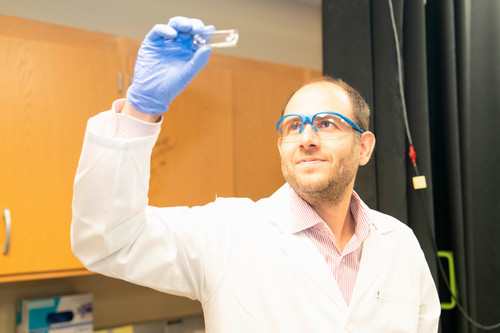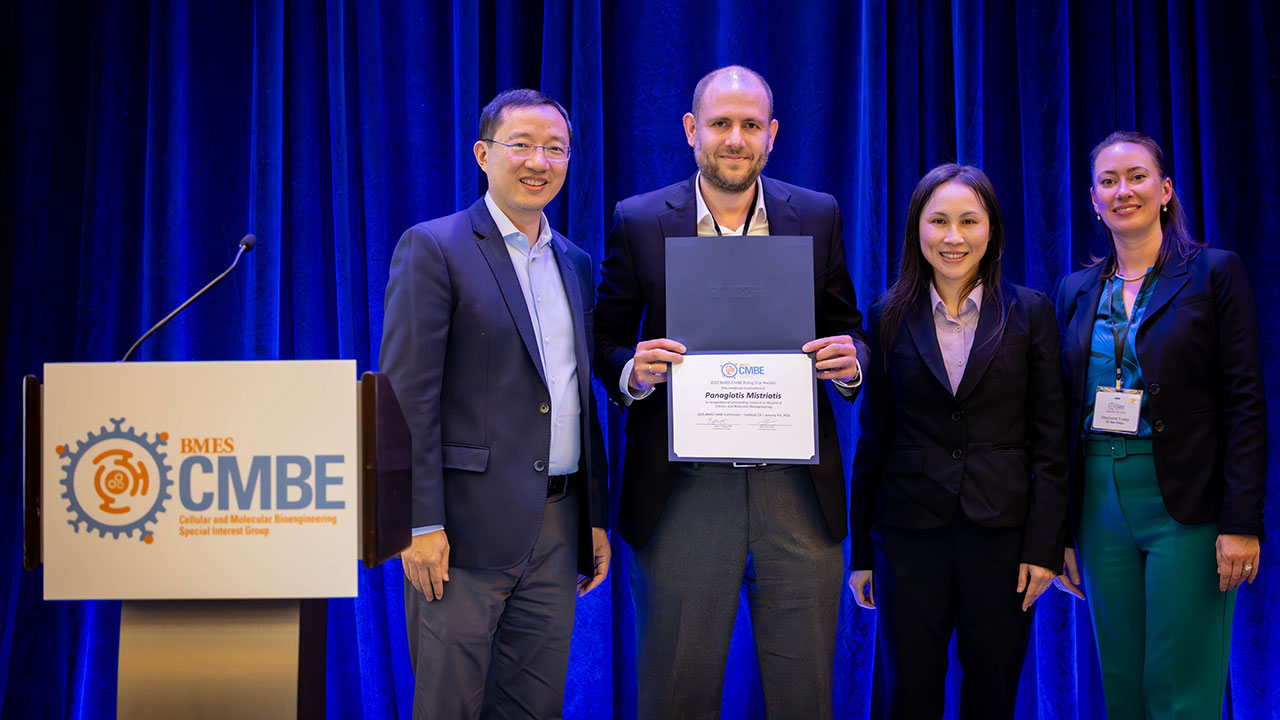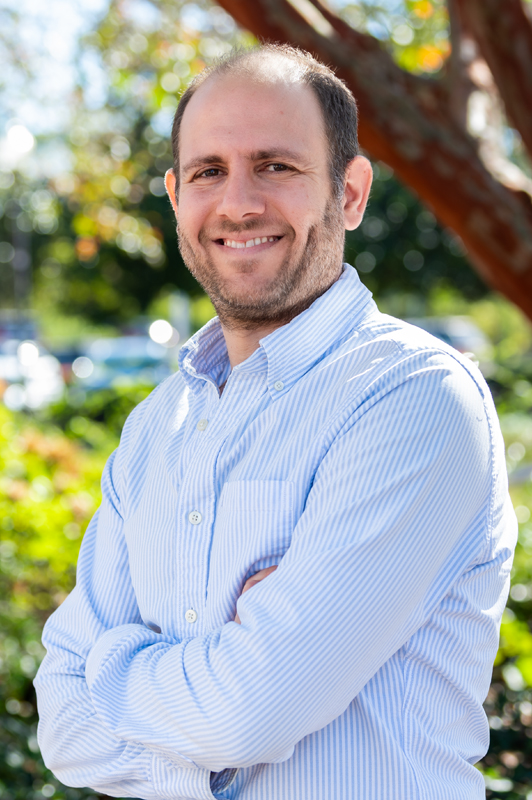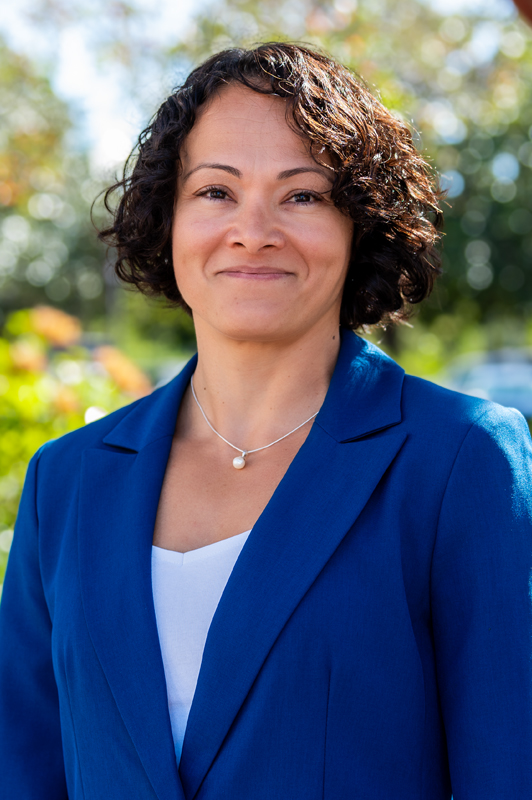Assistant professor in chemical engineering earns BMES-CMBE Rising Star Junior Faculty Award for study of cancer cell migration
Published: Jan 14, 2025 8:25 AM
By Joe McAdory
How does hydrostatic pressure impact cell movement? What role do pressure-generated flow fields play in disease progression? How do cells sense and interpret elevated pressure forces?
Panagiotis Mistriotis, an assistant professor in the Department of Chemical Engineering, is researching answers to these questions and hopes to uncover insights that could lead to life-saving interventions.
“Understanding how cells respond to pressure might provide us with insights on how cancer cells spread to other organs,” he said. “If we uncover the underlying mechanisms, then perhaps we can block, or slow, cancer cell migration, reducing metastasis. Metastasis accounts for the most cancer deaths. Patients rarely die from the original tumor where the cancer started. They die because the cancer metastasizes to other parts of the body.”

Mistriotis presented his work on Jan. 5 at the annual Biomedical Engineering Society-Cellular and Molecular Bioengineering (BMES-CMBE) conference in Carlsbad, California, where he was recognized as a 2025 BMES-CMBE Rising Star Junior Faculty Award winner.
The award recognizes researchers in their early independent career stages who have made an outstanding impact on the field of cellular and molecular bioengineering.
“Dr. Mistriotis continues to make remarkable strides in cellular and biological engineering,” said Selen Cremaschi, chemical engineering department chair. “His groundbreaking research not only advances our understanding of complex biological systems but also paves the way for significant scientific breakthroughs. We are proud to support his innovative work, knowing it will have a profound impact on the future of science.
“Earning this Rising Star Junior Faculty Award not only celebrates innovative research and dedication to advancing biomedical engineering, but also underscores the significant impact they are poised to make in the field. We are immensely proud of Dr. Mistriotis and his commitment to pushing the boundaries of scientific discovery."
Mistriotis was awarded $1.87 million from the National Institute of General Medical Sciences/National Institutes of Health in 2022 to study how pressure forces affect cell movement. Two years of research have paid off.
“Contrary to fundamental principles of engineering and basic common sense, we have recently shown that under certain conditions, cells move against the direction of flow,” he said. “In other words, they migrate toward regions of higher pressure, which we believe could have implications for cancer metastasis. Most tumors display elevated pressure. While the majority of cancer cells stay within the original tumor, a small subpopulation is capable of evading this environment. Our research shows that metastatic cancer cells are better at escaping high-pressure environments and moving in the direction of flow. One of our goals is to understand why some cancer cells respond to flow while others don’t. This could help us uncover why certain cells stay in the tumor while others spread to different parts of the body.
Mistriotis is no stranger to recognition for his research and hard work. He was named 2024 Young Innovator by the scientific journal Cellular and Molecular Bioengineering for his study, “Leveraging Cell Migration Dynamics to Discriminate between Senescent and Pre-scenescent Human Mesenchymal Stem Cells” and earned an Early Career Award from the National Blood Foundation in 2021.
Most recently, Panagiotis was among Auburn University Faculty Awards recipients, earning the Emerging Faculty Creative Research and Scholarship Award.
“Earning the 2025 BMES-CMBE Rising Star Junior Faculty award shows that our hard work is being recognized among peers and senior professionals,” said Mistriotis, who believes his interdisciplinary training in chemical engineering, biology and biological engineering best prepared him to study mechanobiology, a rapidly emerging scientific field that investigates how mechanical forces influence processes at the molecular, cellular, and tissue levels. “This recognition further validates our efforts and shows that our lab is making a positive impact.”
Media Contact: , jem0040@auburn.edu, 3348443447
Panagiotis Mistriotis (second from left), received the 2025 Biomedical Engineering Society-Cellular and Molecular Bioengineering Rising Star Junior Faculty Award at its annual conference on Jan. 5 in Carlsbad, California. (Photo courtesy of Tianze Guo)



